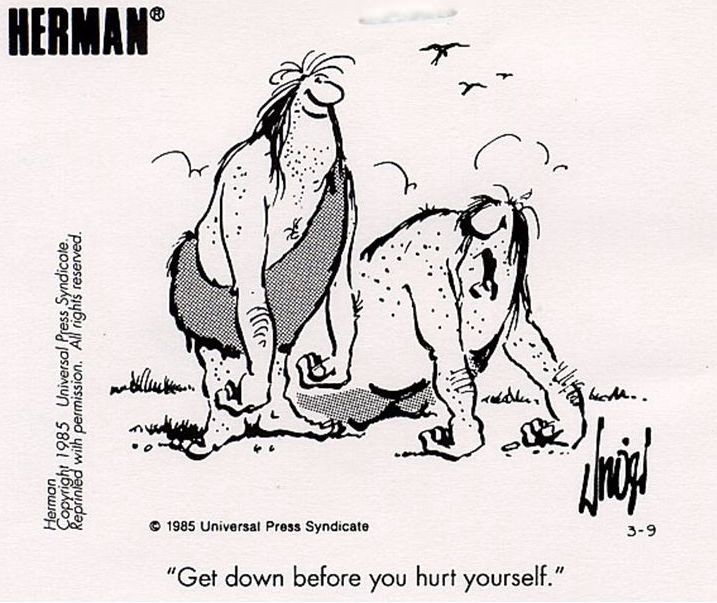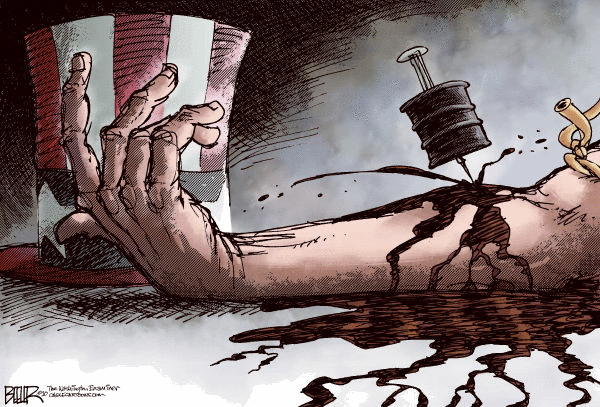
The boy who never built a castle in the air will never build one on earth. – Thomas Wentworth Higginson
The Twitter vitriol poured on Alexandria Ocasio-Cortez (29) and Greta Thunberg (16) reminded me of Wentworth’s quote.
Striking, yet unsurprising, is the lack of alternative solutions proposed by their older critics who I imagine sitting on bleachers – seething in the green muck of their envy and shrunken under the tepid sun of their cowardice – while these two young idealists dare to enter the arena with the audacity and courage to imagine a better, saner future.
The attacks echo the slurs against Rachel Carson after the publication of her 1962 seminal book ‘Silent Spring’ which conceivably pulled us back from the brink of environmental disaster:
Radical, communist, disloyal, unscientific, hysterical!
A book reviewer for Time characterized Carson’s argument as “unfair, one-sided, and hysterically overemphatic.” He traced her “emotional outburst” to her “mystical attachment to the balance of nature.”
In other words, Carson was deemed by her critics to be irrational.
“Who’s to say that certain types of irrational thinking aren’t exactly what the world needs?” asked 12 year-old Adora Svitak in her 2010 Ted Talk.
“Maybe you’ve had grand plans before,” she said, “but stopped yourself, thinking, ‘that’s impossible,’ or ‘that costs too much,’ or ‘that won’t benefit me.’ Kids aren’t hampered as much when it comes to thinking about reasons why not to do things. Kids can be full of inspiring aspirations and hopeful thinking, like my wish that no one went hungry, or that everything were free… kind of utopia. How many of you still dream like that and believe in the possibilities? In many ways, our audacity to imagine helps push the boundaries of possibility.”

In 1968, The National Aeronautics and Space Administration (NASA) asked Dr George Land and Beth Jarman to develop a highly specialized test to effectively measure the creative potential of NASA’s rocket scientists and engineers. The duo came up with an unorthodox test rooted in the process of divergent thinking: the ability to look at a particular problem and propose multiple solutions. The test worked so well at identifying the best candidates that Land and Jarman decided to administer it to 1600 five year-olds.
What they discovered was astonishing.
Out of the 1600 kids that took the test, 98% of them scored at genius level!
Excited by this incredible finding, the team decided to turn this test into a longitudinal study and tested the same group of children five years later. By then, in grade school, the children’s level had declined to just 30%.
By age 15, it had dropped all the way down to 12%.
Disturbed, but still intrigued by this fascinating study, Land and Jarman decided to conduct this same test on adults aged 25 and up (with an average age of 31). After numerous studies, what they found was that less than 2% of all adults scored at genius level!
Why?
Once bitten, twice shy.
As life batters us with the “slings and arrows of outrageous fortune,” we become less creative and more risk averse. As we age, we shift our mental calculations toward what we stand to lose, rather than what we stand to gain and our courage to dare is weakened by our fears — of loss, rejection, judgment, and criticism; fears which gradually wrap us in an armor of cynicism which we deceptively label practical or pragmatic.
Ironically, William James, founder of the philosophical school of pragmatism, had this to say:
Man’s chief difference from the brutes lies in the exuberant excess of his subjective propensities, — his pre-eminence over them is solely in the number and in the fantastic and unnecessary character of his wants, physical, moral, aesthetic, and intellectual. Had his whole life not been a quest for the superfluous, he would never have established himself as inexpugnably as he has done in the necessary. And from the consciousness of this he should draw the lesson that his wants are to be trusted; that even when their gratification seems farthest off, the uneasiness they occasion is still the best guide of his life and will lead him to issues entirely beyond his present powers of reckoning. Prune down his extravagance, sober him, and you undo him.
If we had limited ourselves to what appeared possible, safe, and practical, we would have never become bipedal.

English journalist Caitlin Moran cautioned that “cynicism scours through a culture like bleach, wiping out millions of small, seedling ideas.”
“The poorest way to face life is to face it with a sneer,” said U.S. President Theodore Roosevelt. “There are many men who feel a kind of twisted pride in cynicism; there are many who confine themselves to criticism of the way others do what they themselves dare not even attempt. There is little use for the being whose tepid soul knows nothing of great and generous emotion, of the high pride, the stern belief, the lofty enthusiasm, of the men who quell the storm and ride the thunder.”
It would be one thing if those without the courage to dare greatly were to remain shut in the dark and malodorous space of their dispirited lives. Quite another is pouring the acid of their fecklessness on the hide of those who do dare.
“Ah! I have known noble ones who lost their
Highest hope. And then they disparaged all
High hopes.
Then lived they shamelessly in
Temporary pleasures, and beyond the
Day had hardly an aim.
Then broke the wings of their spirit.
Once they thought of becoming heroes;
But sensualists are they now.
A trouble and a terror
Is the hero to them.” — Friedrich Nietzsche ‘Zarathustra’
At 57, I have harvested enough disappointments — in love and enterprise — to make even the fiercest gladiator never want to set foot again on the arena of life’s slaughterhouse. My hide is black-and-blue from the pummeling fury of fortune’s mercurial temper. Yet, I have not ceased to ask myself: “What if? or “If only…” I still yearn to quell the storm and ride the thunder… still believe in impossibilities. It’s the reason why I side with those like #AOC and Greta Thunberg and cheer their valiant efforts to challenge the status quo. They are no trouble and terror to me, but an inspiration, stirring the same hopefulness I felt when watching the young man block the advance of a column of tanks on China’s Tiananmen Square in 1989.

“The truly decrepit, living corpses,” said Henry Miller, “are those middle-aged men and women who are stuck in their comfortable grooves and imagine that the status quo will last forever, or else, are so frightened it won’t that they have retreated into their mental bomb shelter to wait it out.” You can avoid reality, writer Ayn Rand warned, but not the consequences of reality.
When we operate under fear, we use a smaller part of our divergent thinking and stifle our capacity to generate creative ideas by exploring many possible solutions. Convergent thinking, focused on coming up with the single, well-established answer to a problem, begins to come up with all sorts of reasons why it can’t be done.
Nothing will ever be attempted if all possible objections must first be overcome. — Samuel Johnson
The new generation is inviting us to dare to dream the impossible, to awaken the genius of our inner child, who, full of inspiring aspirations and hopeful thinking, is not hampered when it comes to thinking about reasons why not to do things. We should either accept their invitation or get out of their way.
Society is not a bond between the living, said philosopher Edmund Burke. It is a bond between those who are living, those who are dead, and those who are yet to come. As it stands right now, it appears that the generation currently in charge is assuming the stance of comedian Groucho Marx who once scoffed: “What should I care about future generations… what have they ever done for me?”
At the recent Austrian World Summit, Greta Thunberg ended her speech with this indictment: “For too long, the people in power have gotten away with basically doing nothing to stop climate and ecological breakdown. They have gotten away with stealing our future and selling it for profit. But we young people are waking up and promise we will not let you get away with it anymore.”
How will we respond?
Will we rise to the challenge or cower inside our mental bomb shelters to wait it out, hoping for a savior?
“Our world needs fierce men and women,” writer Sam Keen urged, “who must deal with the darkness at noon, the failure of our success, the impotence of our power, and the waste products of our creativity. It needs spiritual warriors who are alive with moral outrage and who enter the arena to wrestle with the mystery of evil. Fierce individuals who still have thunder and lightning in them; not dispassionate spectators or cynics.”
As for the world, the same applies to our lives.
I suspect many of you, despite age, circumstance, or accumulated disappointments, still wonder what your life would be like if you had the temerity to build castles in the air; to give voice and impetus to your “irrational” dreams, yet you deny them out of fear of judgment, discomfort, failure, or loss. In the end, however, should you cower, the day will come when you will have to face the most terrifying judge of all: yourself.
Hell is found, said writer Paulo Coelho, twenty seconds before you die as you look back and discover that you did not dignify the miracle of existence with a life of purpose. Heaven, he added, is the realization that, while you erred, you gave it your all.
Dare to be irrational! Shatter the status-quo of your existence! Think not of what you stand to lose but what you will gain by breaking free from your self-imposed prison… more time for joy, deeper and more meaningful relationships, ardent desire, wonder and delight.
If each new day — as our human life unfolds itself like the pages of an illuminated fairy book — is not a caravanserai of marvels, a ship of treasure, an island of enchantment, with its own sun and moon and high particular stars, what, in heaven’s name, is the value of being alive at all? Nature intended us to be exquisitely happy and when our happiness ebbs it is because some phobia or mania or inhibition in ourselves. — John Cowper Powys
Trust your wants. Prune not your extravagance. Become uninhibited, zany, expansive, voracious and wild. Seek through the fire of your enthusiasm and idealism to make your clay statue incandescent at last!
Having answered the call to adventure, I assure you that a day sailing wild and pathless seas is worth more than an eternity spent safe at harbor.
As you move into authenticity — your true story — you will unleash unsuspected powers which not only will blow on the embers of your dreary, sputtering life, but will incite you to respond to the calling of our time.
Let those tepid souls, who sit in the bleachers, rot in the dunghill of their timidity.
Join my mailing list.





